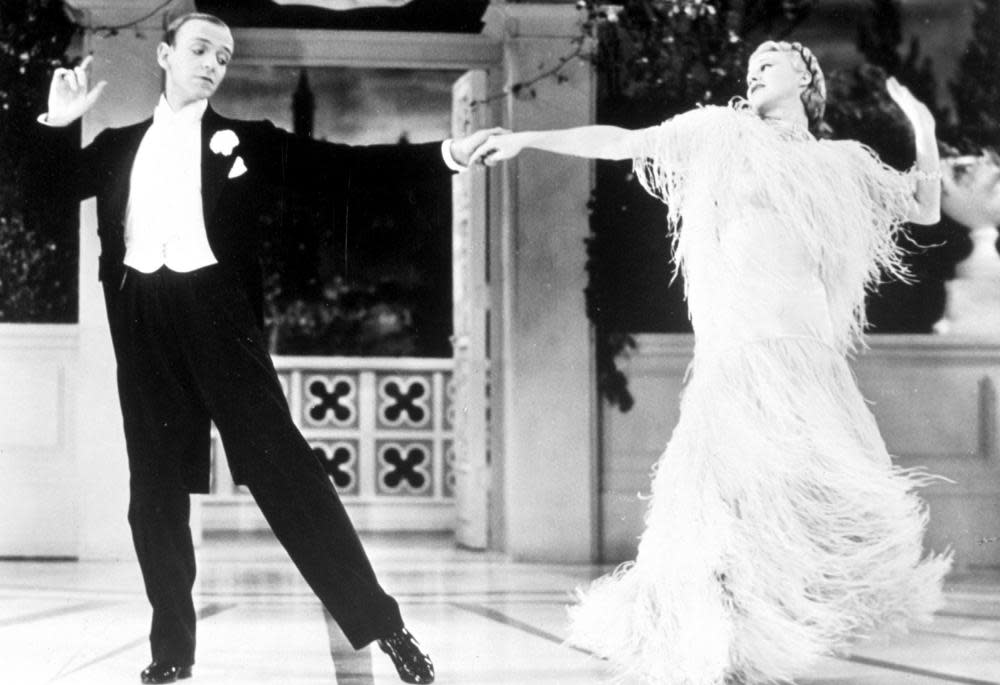Top Hat review – stylishly madcap dance film with Astaire and Rogers cheek to cheek

Like a Shakespearean marriage comedy with a spoonful of Feydeau farce, this madcap musical from 1935, from screenwriters Allan Scott and Dwight Taylor and director Mark Sandrich, saunters back for a re-release. It features Fred Astaire as Jerry, the American dance star visiting London, a city seen in almost surreally weird back projections – and Astaire incidentally does an intentionally terrible Cockney accent when he pretends to be a hansom cab driver. (It is one of the rare times he does not appear in faultless evening dress.) Irving Berlin’s classic songs Cheek to Cheek and Top Hat, White Tie and Tails are great, and Astaire swirls on a forward-tilting gyroscopic axis with his spindly arms and legs effortlessly orbiting him like Saturn’s moons.
Playing opposite him – and of course, as she herself pointed out, doing the same thing as Astaire only backwards and in heels – is Ginger Rogers; she is Dale Tremont, a freethinkingly modern young American woman who has a romantic escapade with Jerry, but gets upset when she thinks he is the husband of her pal Madge (Helen Broderick). In a tizzy of emotional hurt Dale flees to Venice where she impulsively decides to marry her highly-strung Italian couturier Alberto Beddini (Erik Rhodes). Meanwhile Madge’s actual husband, theatre impresario Horace Hardwick (Edward Everett Horton), brings Jerry over to the Venice Lido: a quite extraordinarily camp flooded stage set of canals and bridges, like something from Las Vegas. Eric Blore gives us some very broad comedy as Bates, Horace’s grumpy manservant and master of disguise.
Astaire’s feline inverted-triangle face smiles atop a black swallow-tailed body undulating across the screen; he creates an exotic strangeness, juxtaposed with Ginger Rogers’s level-headed simplicity. But ungallantly, the film never allows her a solo turn to match the many that Astaire has. The Italians have their “white telephone” movies of the 30s and 40s; Top Hat is from an era when entire apartments and hotel rooms were white, and the movie’s theatrical heritage means that the characters would do some brief stage business in these rooms in an unedited silence. This is a film in which a bellboy could appear with a telegram and stand there patiently, get paid and go.
Top Hat reflects a transatlantic kind of universe, the Brit dimension absorbed into American waspy class, and sweetened with some mannered comedy; this was a Hollywood that loved PG Wodehouse. Astaire himself is not a comic player precisely, though his star quality means that he is never upstaged by the humorous smaller roles. Rogers has real style, wearing some amazing gowns with panache, and that panache guides and accelerates the entire picture.
• Top Hat is released on 7 April in UK and Irish cinemas.

 Yahoo Movies
Yahoo Movies 
